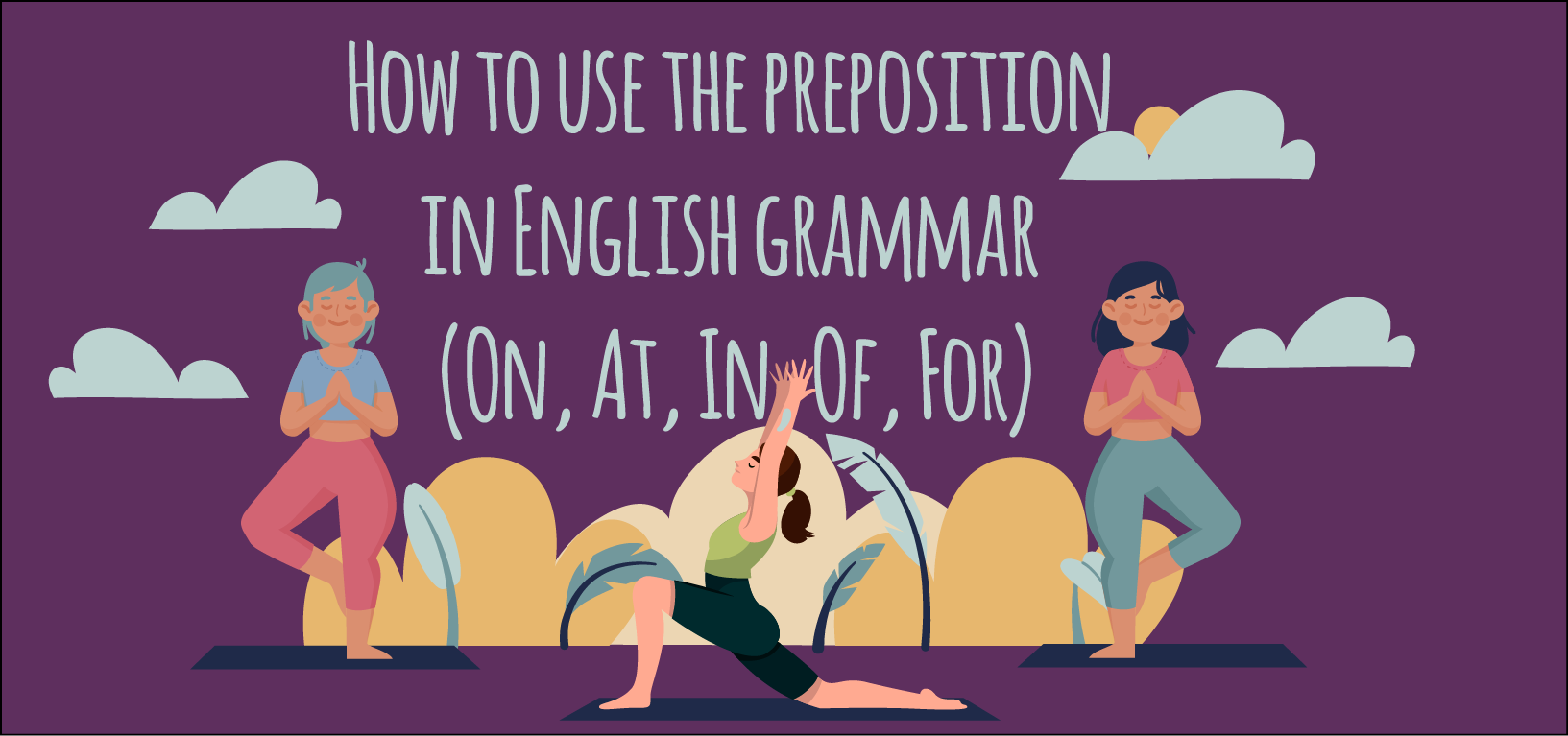How to use the preposition in English grammar (On, At, In, Of, For)

How to use the preposition in English grammar (On, At, In, Of, For)
ÍNDICE DE CONTENIDOS
Given the great importance of prepositions in English grammar, it is very important that English learners take the time to learn them , as they are an essential part of sentence structure. In fact, in many cases, if the wrong preposition is used by mistake, the meaning of the phrase can change completely. In this article we will try to help you in this complicated task and we will teach you “How to use the preposition in English grammar ( On, At, In, For”)
What are the prepositions?
Prepositions are terms that relate the different elements of a sentence . They can indicate origin, destination, address, place, etc.
Learning the prepositions of English can be quite difficult for those who study it as a foreign language, since there is really no shortcut and all of them have to be learned and understood by heart individually. However, the process can be made slightly easier if we classify them into different groups.
What are prepositions for?
Prepositions are the words that join a noun, pronoun, or noun phrases and complete each sentence.
Examples:
- A la oficina, sobre la mesa, sobre mí, en unos minutos, en mi casa, etc
- To the office, on the table, on me, in a few minutes, at my house, etc.
Here, “to”, “on”, “in” and “at” are easily seen as prepositions.
Also, prepositions are used in sentences to indicate a location, direction, time, or sometimes to introduce an object . Here we will mention some of the most common prepositions and their applications in sentences.
On (refers to the surface of something)
- Dejé los platos en la mesa del comedor. I kept the dishes on the dining table
On (specify days and dates)
- Vendré el lunes. I will come on Monday
- Ella está al teléfono. She is on the phone.
- Mi película favorita estará ahora en la televisión My favorite movie will be on TV now.
- Encendido (se refiere a las partes del cuerpo) sigo usando mi anillo de bodas en mi dedo. On (refers the parts of the body) — I keep wearing my wedding ring on my finger.
- Activado (para referir un estado): los productos disponibles en la tienda están a la venta. On (to refer a state)- The products available in the store are on sale.
At:
- At (to indicate a place) – Hay un buen número de personas en el parque. – There are a good number of people at the park.
In:
- In (to indicate a location): ahora estoy en el lugar de mi amigo – I am in my friend’s place now.
- In (used when doing something): el eslogan debe ser atractivo al comercializar un producto. – The tagline should be catchy in marketing a product.
- In (to indicate opinion, belief, feeling, etc.)
- I believe in hard work.
In (to indicate opinion, belief, feeling, etc.)
- I believe in hardworking.
On (specify day, month, season, year): prefiero hacer matemáticas por la mañana. – I prefer to do Maths in the morning.
- La nueva sesión académica comenzará en marzo. The new academic session will commence in March
In (to indicate color, shape and size): este vestido viene en cuatro tamaños.– This dress comes in four sizes.
To (to indicate address, place):
To ( to indicate the address, the place ) – Los amigos fueron al restaurante. – The friends went to the restaurant .
- Me dirijo a mi universidad. I am heading to my college.
To ( to indicate relationship ) – No responda a las personas molestas.– Do not respond to the annoying persons.
- Tu respuesta es importante para mí. Your answer is important to me.
To ( to indicate a limit ) – Los periódicos viejos se apilaron hasta el techo. – The old newspapers were piled up to the roof.
To ( to refer a period ) -Estoy aquí de 10 a 5. – I am here from 10 to 5.
Of(to indicate relativeto, belonging to):
- Of (to indicate relative to, belonging to) – Siempre soñé con ser famoso.– I always dreamed of being famous.
- Of (to indicate reference) esta es una foto de mi último cumpleaños.- This is a picture of my last birthday .
- Of (to specify number or quantity) un buen número de personas comprende hindi. – A good number of people understand Hindi.
For (to indicate the reason):
- For (to indicate the reason or because of) -Estoy muy feliz por ti. – I am really happy for you
- For (to indicate duration or time): asistí a la sesión solo durante un año.– I attended the session for one year only.
- For (specify use of something): se está preparando para su examen final.– She is preparing for her final exam
It is very important to learn prepositions well to know English grammar. And remember! If before the end of the year you want to obtain your official title, here we leave you a platform with the next calls.


